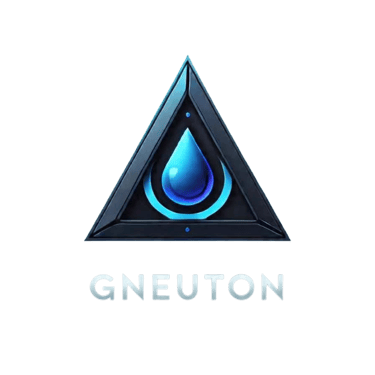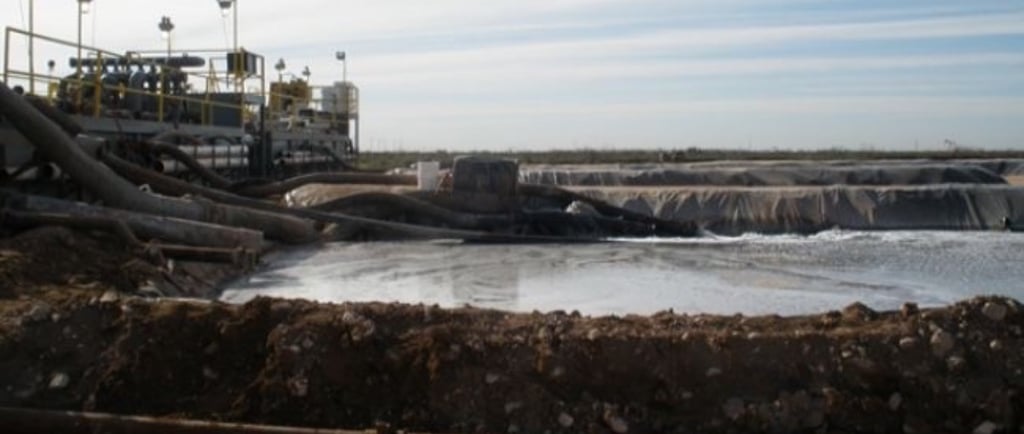The Massive Produced Water Problem Facing the Permian Basin & Beyond
The oil and gas industry is facing a significant challenge that is quickly moving into crisis mode with the management of produced water - particularly in prolific regions like the Permian Basin. Produced water is a byproduct of oil and gas extraction, and its volume is staggering and growing. In the Permian Basin alone, it's estimated that now in 2025 over 30 million barrels (42 gallons per barrel) of produced water are being produced daily with this number estimated to grow to 38 million barrels or more daily by 2030.
Brad Martineau
2/7/2025
By: Brad Martineau, CEO of Gneuton
Date Published: February 6, 2025
The oil and gas industry is facing a significant challenge that is quickly moving into crisis mode with the management of produced water - particularly in prolific regions like the Permian Basin. Produced water is a byproduct of oil and gas extraction, and its volume is staggering and growing. In the Permian Basin alone, it's estimated that now in 2025 over 22 million barrels (42 gallons per barrel) of produced water are being produced daily with this number estimated to grow to 26 million barrels or more daily by 2030. The American Oil & Gas Reporter
The Challenge of Disposal and Environmental Impact
Traditionally, produced water was disposed of through deep well injection, but this method has its drawbacks. RBN Energy Deep disposal wells can cause seismic events, and shallow disposal wells can negatively impact oil well integrity. The environmental impact of produced water disposal is a growing concern, with increasing earthquake activity and potential contamination of groundwater sources. Moreover, there is only so much water that can be pumped down into the deep injection wells, thus limiting the oil and gas industry’s ability to grow and possibility even sustain current production level - possibility necessitating oil and gas wells to be shut-in.
The Economic and Environmental Benefits of Reuse
Reusing produced water not only reduces the environmental impact, but also offers economic benefits. By recycling produced water, companies can reduce their reliance on freshwater sources and lower operational costs. The Texas Produced Water Consortium reported back in 2023 that an estimated 14 million barrels of produced water (and growing) were being generated daily from both the Delaware and Midland basins alone - with approximately 11 million barrels (78%) being reused for hydraulic fracturing in the Permian Basin. Texans for Natural Gas However, this still leaves over 6,000,000 barrels or 277,200,000 gallons of water per day that still needs to either be safely disposed of or treated properly so it can be integrated in the ecosystem.
Produced Water can be a Valuable Resource
One recent article reports that based on the current rate of fresh water consumption, the world may actually run out of fresh water by 2040. Izaak Walton League of Ameria Brent Halldorson's paper "Produced Water - the Unlikely Hero of the Permian Basin" (2014), discusses the transformation of produced water from being seen as a waste product of oil and gas development to possibly becoming a valuable resource, especially in the Permian Basin due to water scarcity. Produced Water - the Unlikely Hero of the Permian Basin. If the industry can find a way to clean and purify the produced water so that it is as clean if not cleaner than natural fresh water, then the industry can alleviate its reliance on the scarce fresh water supplies for fracking. Unfortunately, it has not been able to find a viable economic solution to treat and purify the produced water (until now) so it can be repurposed into the natural ecosystem.
Innovative Solutions and Technologies
Companies like Chevron, ConocoPhillips, ExxonMobil, and Coterra having been working hard and spending an enormous amount of time and resources piloting advanced treatment technologies in an attempt to find a viable solution. Hart Energy These technologies include hydrocyclone and membrane filtration, mechanical vapor compression (MVC), membrane desalination, biological and chemical precipitation, and advanced oxidation processes (AOPs). These methods aim to treat produced water to a level where it can be safely reused for irrigation, biofuel production, aquifer recharge, and other beneficial purposes. Although the industry has been good about trying to move towards a more holistic approach to produced water management by focusing on recycling and reuse rather than disposal, there are still millions of barrels of water per day in the Permian Basin alone that need to be either disposed of or treated. Nevertheless, as of now, none of these methodologies are economically feasible for the industry and ultimately the end consumer.
Clean Fresh Water
FINALLY!! An Economically Viable Solution to Purify Produced Water
At Gneuton, we have recently developed an extremely affordable, sustainable and massively scalable solution to treating and purifying produced water. Our patent-pending technology is based on over 15 years of experience developing and deploying cutting-edge water distillation technologies into the oil and gas produced water industry. Our is solution is simple, elegant, and extremely low maintenance, which results in an order of magnitude reduction in cost. Because our technology uses thermal distillation to do the work, we can treat virtually any source of wastewater and achieve drinking water standards at one third of the cost that industry is currently paying and ultimately the consumer is paying! This means millions of gallons of water per day can be repurposed for beneficial reuse - even for drinking water. What’s best is that our systems accomplish this while also reducing carbon emissions, disposal volumes, and cost associated with current reuse and disposal options.
Based on our experience, we have learned that field maintenance is the single largest factor in the failure of other water treatment technologies. Our technology is designed to be as simple as possible, which increases uptime, reduces maintenance, and ensures many years of uninterrupted, reliable, low-cost operation. We utilize off-the-shelf gas turbine engines, fueled by low-value wellhead or flare gas (nuisance gas that would otherwise be burned into the air), to generate a high temperature, pressurized, high-velocity exhaust stream that does all the work. The exhaust is directed into a boiling chamber, which contains no moving parts, no heat exchangers, and no tight clearances that would otherwise get clogged up or fouled with salt and mineral buildups. Instead, our systems use specially modified standard frac tanks to create a venturi effect that mixes the hot exhaust from the gas turbine engines with the water, allowing for highly efficient, direct contact heat transfer. Points of failure and maintenance intervals are drastically reduced and because the engine itself is never in contact with the water, and the temperatures and pressures are precisely controlled, engine service intervals are extended to as long as 120,000 hours - 15 years!
The result is that up to 90% of the produced water is converted into clean water while the small volume of remaining brine concentrate is sent to disposal wells. We can comfortably fit our distillation technology to work with the exhaust from any existing power production gas turbine engines, or we can operate independent gas turbine engines for water treatment and provide low cost electrical power to other industries, such as cloud computing, without the carbon footprint or water needs typically associated with power hungry applications.
Statements regarding future plans or outcomes of Gneuton reflect current expectations and are subject to change based on operational, regulatory, and environmental factors.
About Bradley J. Martineau
Bradley J. Martineau is the CEO of Gneuton, an innovative technology company delivering massively scalable and affordable, carbon-neutral solution for purifying oilfield produced water and power plant raw water while providing cheap off-grid electricity for AI Data Centers. He is also the Author of the Amazon Best Seller 'The AI-Enabled Executive' and frequently speaks on AI as well as provides strategic and responsible AI consulting for executives and organizations.
DISCLOSURE: The images in this Article were AI-generated. AI was also used in this Article to brainstorm and expand on thoughts and ideas, research articles, and for editing.
DISCLAIMER: The information provided in this article is for general informational purposes only and should not be considered as legal, business, or financial advice. No part of this article is intended to create, nor does it constitute, an attorney-client, financial advisor-client, or professional relationship. You should seek the advice of qualified professionals in the respective fields before making any decisions based on the information provided. Bradley J. Martineau is not responsible for any actions taken or decisions made based on the content of this article.
Innovation
Turning AI Data Centers Fresh Water Positive Now
Efficiency
Sustainability
© 2026. Gneuton. All rights reserved.
Transparency Disclosure: All images & videos on the website were AI generated &/or licensed, except for the profile pictures of the Executive Team.


